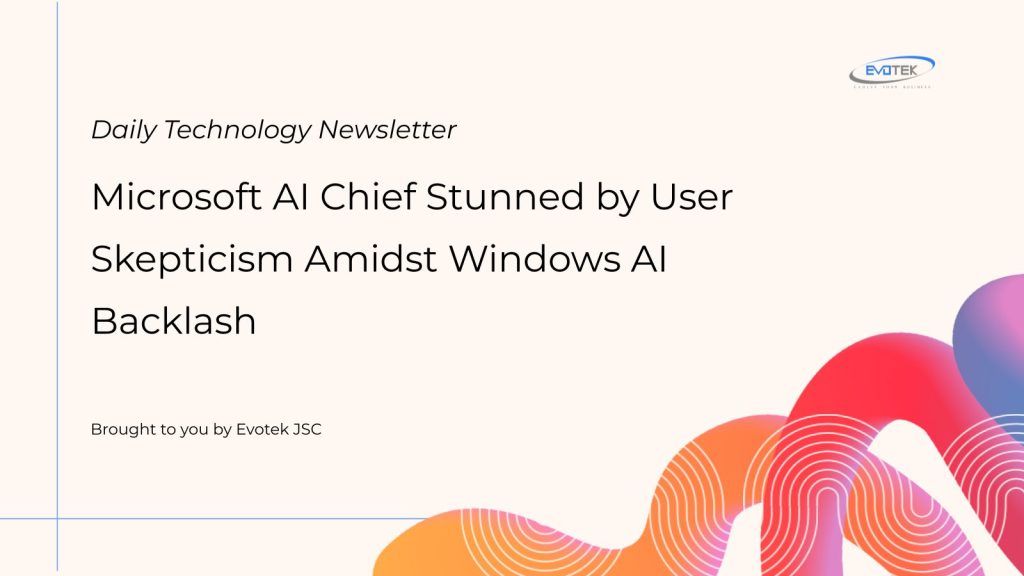Microsoft’s AI CEO, Mustafa Suleyman, recently voiced his astonishment regarding public skepticism towards artificial intelligence, particularly in the wake of significant user pushback against Microsoft’s Copilot and the evolving vision of Windows as an “agentic OS.”
Suleyman’s “Mindblowing” Reaction to AI Critics
In a candid post on X, Suleyman expressed his frustration, stating, “Jeez there so many cynics! It cracks me up when I hear people call AI underwhelming.” He contrasted the current state of AI with his own early tech experiences, adding, “I grew up playing Snake on a Nokia phone! The fact that people are unimpressed that we can have a fluent conversation with a super smart AI that can generate any image/video is mindblowing to me.” This remark highlights a perceived disconnect between tech innovators’ excitement and users’ practical expectations regarding AI capabilities.
Context: Davuluri’s Agentic OS Backlash and Copilot Concerns
Suleyman’s comments arrive on the heels of notable controversy surrounding Microsoft’s AI ambitions. Windows president Pavan Davuluri recently faced intense online criticism after discussing the concept of Windows transforming into an “agentic OS.” The negative reception was so strong that Davuluri had to disable replies on his post, though he later acknowledged user feedback, assuring customers that their concerns were heard.
Furthermore, the timing coincides with a critical report from The Verge, which meticulously detailed how Copilot’s real-world performance often falls short of Microsoft’s promotional claims. The investigation revealed that Copilot frequently struggles to execute user requests seamlessly or fluently, directly contradicting the polished demonstrations seen in its advertisements.
Microsoft’s AI Vision vs. User Perception
This confluence of events poses a significant challenge for Microsoft, especially as the company recently unveiled “Your canvas for AI” as its new Windows tagline. Microsoft is aggressively pursuing its vision for an agentic OS, where AI agents are expected to autonomously complete user tasks. However, given the current limitations of AI, particularly Copilot, this ambitious future appears to be more aspirational than immediate reality.
Microsoft currently grapples with a significant perception issue. Many users feel that the company’s intense focus on AI is misdirected, especially when Windows’ overall reputation is arguably at a low point. Critics argue that Microsoft should prioritize resolving fundamental operating system issues rather than integrating AI into every user interface element. While Windows president Pavan Davuluri has acknowledged the need for “a lot of work” to enhance Windows for power users and developers, many remain skeptical that this will translate into a less AI-centric OS, considering Microsoft’s recent transformation into an AI-first company. The concern persists that future Windows versions will be laden with AI features that a majority of users neither requested nor found necessary.
The Road Ahead for Windows AI
Suleyman’s staunch defense of AI, despite mounting user dissatisfaction with Windows and Copilot, underscores Microsoft’s unwavering commitment to an AI-driven future. His belief that AI will permeate every facet of our lives and software experiences sets a clear direction for the company. The coming months will reveal how Microsoft navigates this path, balancing its ambitious AI vision with increasingly vocal customer concerns regarding practical utility and core OS stability.

 日本語
日本語 한국어
한국어 Tiếng Việt
Tiếng Việt 简体中文
简体中文